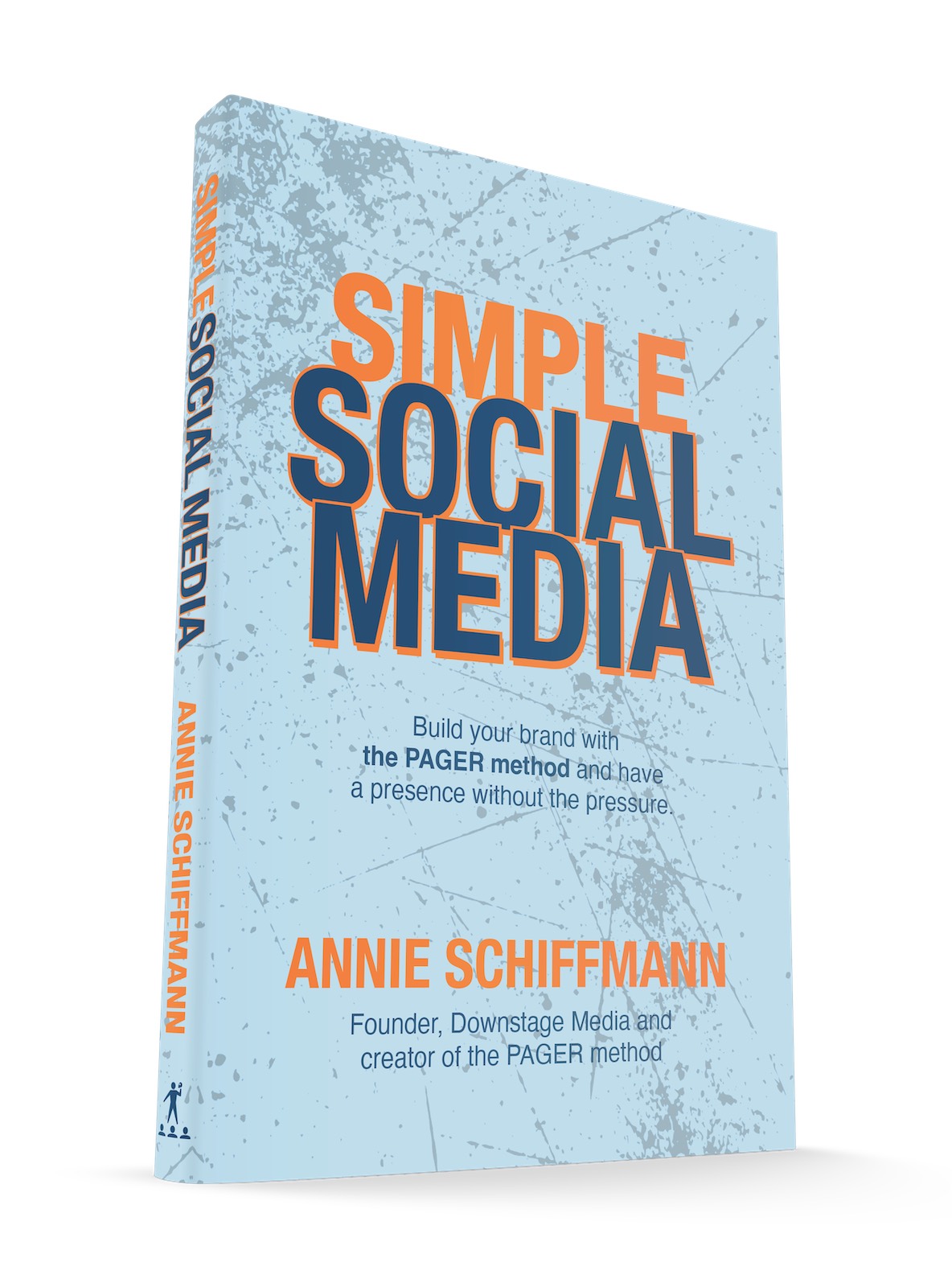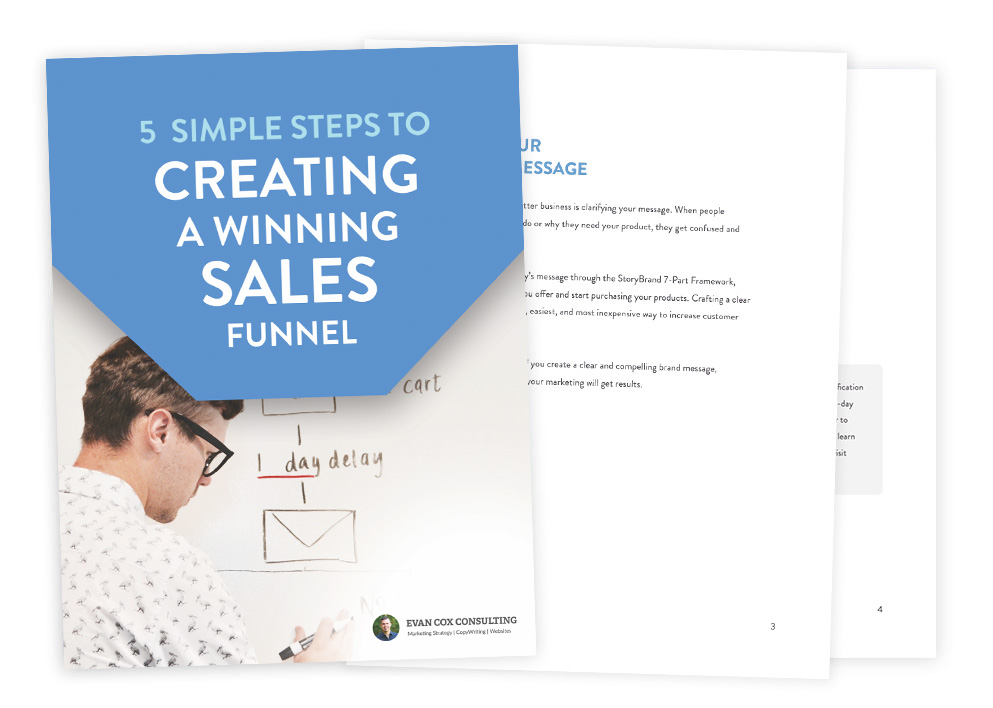When small businesses are looking to increase their revenue, they are often told to “niche down.” Seth Godin has talked about finding the “smallest viable audience” in order “to create so much delight and connection that they choose to spread the word to like-minded peers.”
The thinking is that you become an industry leader in that space and all of the customers will follow. But this leads to the quandary: if you make your focus too narrow, will it make it harder to find customers? On the other hand, there’s the concern that when you talk to everyone you talk to no one.
I started Downstage Media hyper-focused on one very specific niche and then found opening it up to clients outside of it propelled me to triple-digit revenue increases in the past two years. But I couldn’t get to those increases without starting small.
So in this post, I’ll take you through a process you can use to evaluate how niched down you should be, when to open it up, and how to navigate a newer, wider audience.
Stage 1: Everyone, and No One, and Certain People
Before entering the world of marketing, I was an actress. Fresh out of NYU’s Tisch School of the Arts I was thrilled when I got a meeting with one of the biggest casting directors in New York City – Bernie Telsey. As we sat in his 42nd St office, I told him how, not wanting to be typecast, I studied acting, directing, musical theater, film, and television. I could do it all.
So when he asked me, “But what do you want to do?” I said, “Anything.”It was years before his office called me in for an audition. And when did they call me? After I’d spent three years niching down and establishing myself as an improv comedian. Fast forward sixteen years later to 2017 when I started my marketing company, Downstage Media.
This time would be different. This time I was ready to get specific. With my background, I knew the performing arts industry very well. I innately empathized with issues producers were having in terms of selling tickets and I knew not many of them could use social media properly to do so. I had worked with performers who built careers before social media but couldn’t sustain them without it. My niche? Social media marketing for the performing arts.
Tip: when picking your niche, figure out what body of knowledge you know better than most people in the country. Build your messaging around that.
Stage 2: Create Consistent Content for Your Niche
When starting in a new niche, you’re going to have to gain traction in the space quickly so it becomes a viable income stream. A great way to do this is with consistent long-form and short-form content. Putting out content regularly is hard. But necessary.
You have to show up for your audience without expecting anything from them in return. It’s kind of like parenting a newborn. The first few months of a human’s life you don’t expect a thank you for your efforts. But you show up nonetheless. Your way of showing up is by providing consistent content. In return, you’ll have a healthy, thriving audience.
Long-form content helps you really dig deep into topics that your audience wants to know about. Think about blogs, podcasts, or videos that are at least five minutes long.
Note: choose one of these so you can get really good at it and stay consistent. Short form content gives quick bites of information that your audience can use right away. Think about social media posts.
Note: choose no more than two social media platforms so you can understand the platform well and stay consistent.
Tip: Turn one of your pieces of long-form content – or a collection of short-form content – into a lead generator to get your audience to subscribe to your email newsletter so you aren’t reliant on fickle social media platforms.
Stage 3: Service Clients In That Niche, And Adjacent Ones
When you have your messaging and your content for your niche in place, and you have a lead generator, your list of people who want to work with you will grow. In Downstage Media’s early stages, I was only working with those in the performing arts – touring companies, actors, and producers. To keep the lights on, though, I also worked with brands that were adjacent to the performing arts niche.
So, when the owner of a dance studio owner recommended me to her author friend, I’d happily say yes. At this point, you will find that a majority of clients (or revenue) is in your niche, and a few are outside of it.
Tip: Think of yourself like the worker at the amusement park checking the height requirement for a potential rider. You have the power to decide who gets on the ride and who doesn’t. And often it’s a judgment call, but it’s easier to make that call the closer to the line the person is.
Stage 4: How to Handle Outsiders
As you do great work you’ll also begin attracting attention from those outside of your niche. For a long time, this left me with a dilemma – if I take them on, then all of the messaging and imaging that I use is performing arts-based. Will they not see themselves in the content?
Here’s how I’ve worked through this. I started telling clients who were outside of my niche, that I would be happy to work with them, but they shouldn’t be surprised if some of the emails or social media posts they see from my company are arts-focused. If clients were okay with that, we’d keep going.
Tip: Start to take a look at the numbers. At this point in Downstage Media’s journey, I realized that the scales had tipped and I was earning more from clients outside of my niche than in it. (thanks COVID 19-induced theater shutdown!) This helped me get to Stage 5.
Stage 5: Your Messaging Nods to Your Niche
When I realized that I could earn more if I looked outside of the performing arts, then I took a hard look at how viable this niche was for me. Yes, I lived and breathed the performing arts and theater, but I had financial goals that I was determined to hit. And I just didn’t see a clear path relying solely on that niche.
This is when I went from talking about marketing for the performing arts using performing arts-based language to talking about marketing for small businesses using the same arts-based language. For example, instead of using the word “stages” in this post, I could have used the word. But one is more reminiscent of the performing arts, so I chose that.
I now lean heavily on my background in the trenches of both performing and marketing the arts and reference it often. It’s part of my branding and part of how I differentiate myself in the marketplace. And given the revenue growth Downstage Media has sustained in the past two years, it is working.
Tip: Don’t try to hide who you are or what your background is – use it to inform the work that you do now. Gary Vaynerchuck (a fellow Union County NJ business owner) often reminds his audience that he started out in the wine business and mentions how it informs the strategies that he uses with the work he does now with his digital marketing agency.
To Niche Down or Not to Niche Down
Instead of starting out by talking to everyone in order to have a wide range of customers, you can talk to a select few so you can have that wide range of customers. The end goal is the same, the path is different. Think of how great it will be to know that you can rely on your area of expertise to help you build your business – but you don’t have to stay there. Because after all, no one wants to be typecast.
Simple Social Media
Annie is not only a guest on our blog, but a published author. We all know that social media marketing is relentless. With Simple Social Media, you will learn how Annie uses the PAGER method to help you build your brand and have a presence without the pressure.


